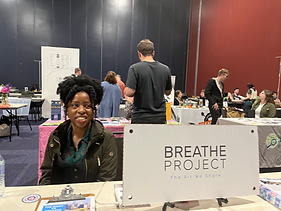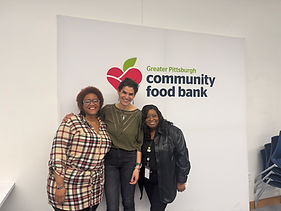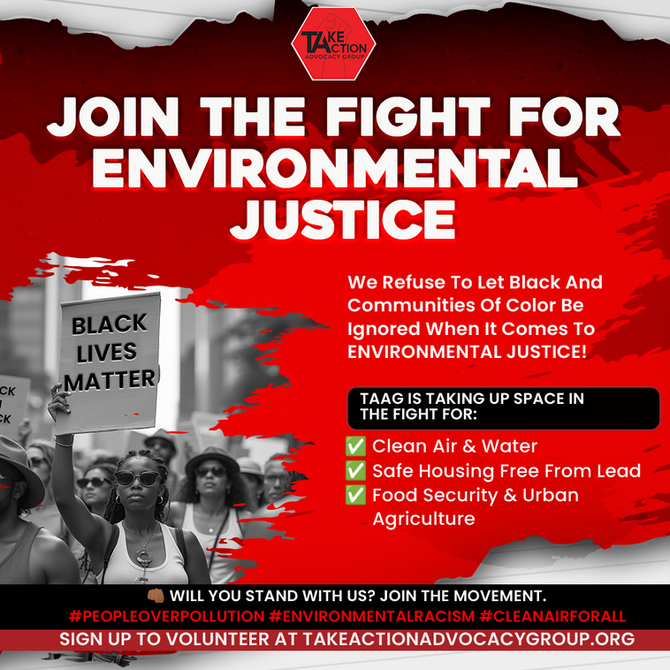

ENVIRONMENTAL JUSTICE
Taking Up Space for Our Communities
In 2025, Take Action Advocacy Group (TAAG) continues to push forward in environmental and climate justice advocacy. For too long, these conversations have been dominated by white voices while Black and marginalized communities suffer the most from environmental injustices.
The Mon Valley, a historically industrial area, has been designated a "sacrifice zone" due to air and water pollution, lead exposure, and food insecurity. We refuse to accept this as our reality. Through strategic initiatives, we fight for a healthier, more equitable future.

I Can’t Breathe or Drink the Water
About
The Mon Valley has long suffered from poor air quality and contaminated water. Industrial pollution and aging infrastructure have forced communities to live with toxic air and unsafe drinking water.
TAAG is taking action through:
-
Get Out the Lead McKeesport Campaign – Addressing lead contamination in homes and schools.
-
Environmental Justice Table (EJT) – A coalition fighting for stronger policies.
-
Community Organizing – Educating and empowering residents to advocate for their health.





About
Mon Valley Deserves Better
Pollution and environmental neglect have deadly consequences.
Air Quality: A 412 Justice report highlights dangerous hydrogen sulfide (H2S) gas levels in Clairton, contributing to respiratory diseases.
Lead Poisoning: 10-14% of children in McKeesport and Duquesne have elevated blood lead levels, often due to contaminated water and aging homes (Allegheny County).
Health Impact: Between 640 and 1,370 people in Allegheny County die each year due to PM2.5 particulate pollution (Carnegie Mellon’s Breathe Project).



Food Apartheid and
Environmental Justice
Food insecurity is not just about hunger—it’s about systemic neglect.
-
McKeesport’s food insecurity rate is 31%, far exceeding state and national levels.
-
Limited access to fresh produce forces communities into reliance on unhealthy food options.
-
TAAG and Penn State University (PSU) have conducted listening sessions, emphasizing self-determination in food access and urban agriculture solutions.



























